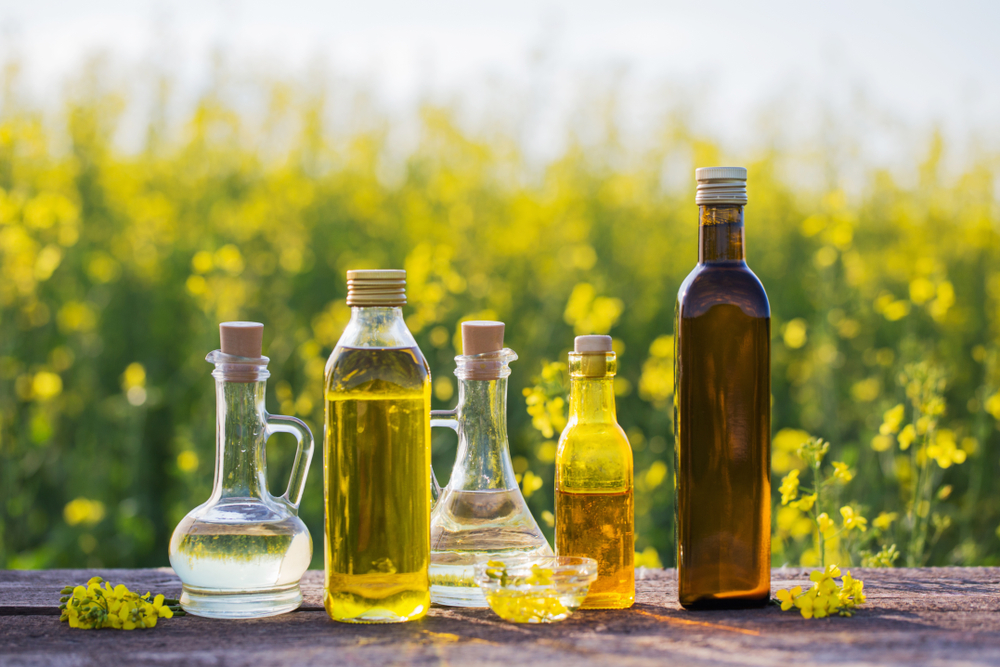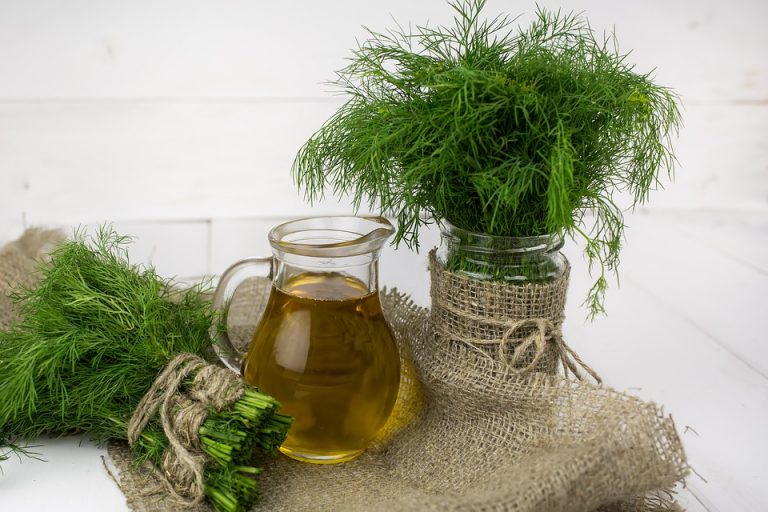Everyone always said that rapeseed oil is bad. True? Since the very beginning, rapeseed lost the battle for a place on the dietary shelves – instead, we can find olive oil or coconut oil there. But did we rightly turn our backs on it? Or, on the contrary - should we stock our kitchen cabinets with it? Here are 4 myths, which you probably heard of before, about rapeseed oil.
Is Rapessed Oil good?
In the age of coconut oil popularity, and "the only correct" dietary recommendations, writing about rapeseed oil is not easy. It has been assumed that it is bad and that’s it. No one knows why, no one knows how important it is that many people really duplicate information that they have not even proven. And the truth is quite different: rapeseed oil is not at all as bad as people think!. On the contrary: there are a lot of pros that people do not realize.
Myth 1: rapeseed oil is much worse than coconut oil.
Currently, we are experiencing a boom for coconut oil: the stars, bodybuilders and fitnessists fry on it. The only question - is it really "the best"? This can be argued.
Coconut oil is largely composed of saturated fatty acids - 82.5 g per 100 g of oil (and those in our diet should be as low as - 10% of the total energy value of our diet). One tablespoon of coconut oil delivers 5% of those 10%. It also contains polyunsaturated fatty acids beneficial for our body, but in the amount of 2%, so relatively little. In addition, it contains trace amounts of vitamin E and K.
On the other hand, one tablespoon of rapeseed oil covers about 50% of the vitamin E requirement. In addition, we will also find in it vitamin K, as it’s the source of it. But the most important information is that rapeseed is a rich source of polyunsaturated omega-3 fatty acids - in an unparalleled amount than coconut oil. The proportions are also proportional: the ideal ratio between omega-6 and omega -3 should be 2: 1 in dieters - and so is the case with rapeseed oil.
Myth 2: Refining is the worst thing possible
The refining process is also very negative. I agree with one thing: the less the product is processed, the better.
This does not mean, however, that we have to discard all the products that undergo any processing. In the case of rapeseed, refining aims to get rid of or reduce the concentration of toxic substances (lead, arsenic, cadmium, mercury, chemical pollution).
Additionally: we are still talking about the advantages of cold processed oil over refined. According to research, it is not entirely justified: when it comes to sterols (which helps lower the levels of bad cholesterol), refined has more than cold pressed (652 mg to 552 mg). In turn, if we talk about the content of tocopherols (one of the forms of vitamin E), they are similar. Similarly, when it comes to the content of unsaturated and saturated fatty acids, there is not much difference here.
The refined variety also has a high smoke temperature (up to 242 ° C) so it is suitable for frying and at high temperatures it does not lose its properties.
Myth 3: rapeseed oil contains bad fatty acids
This is not true. Of all vegetable oils, rapeseed oil has the most favourable composition of fatty acids.
It contains a lot of omega-3 fatty acids (ten times more than olive oil) and the smallest amount of unfavourable saturated fatty acids (two times less than olive oil!). On the other hand, the oleic acid content is approximate to that of the same acid in olive oil.
Rapeseed contains the least saturated fatty acids of all vegetable fats. I repeat - this is the kind of acids that we should eat as little as possible - max. 10% of daily calorie intake.

Myth 4: Rapeseed oil is worthless
Another damaging myth. Rapeseed oil is a source of many healthy substances that have a positive effect on our body:
- Plant sterols, helping to maintain normal blood cholesterol levels
- Vitamins E (in very large amounts) and K
- Alpha-linolenic acid (ALA from the omega-3 family) which helps in maintaining proper cholesterol levels
- Provitamin A
Therefore, it cannot be said that rapeseed oil is barren or worthless – quite the opposite: it can enrich our diet and provide us with valuable nutrients. In the refined version, thanks to the high smoke temperature, it does not lose its properties after thermal treatment.
Before you use rapeseed oil - always check those thing!
As you can see, rapeseed oil is not as terrible as it’s portrayed - and it’s even quite useful! In my opinion, it’s definitely worth including it once in a while for your diet - for example, because of the ideal ratio of omega-6 to omega-3 and the high content of vitamin E. Therefore, we can diversify our diet and we introduce a product with a mass of positive substances!
Do you use rapeseed oil? Do you have it in your kitchen cabinets? Let us know in the comments about your opinions!







50 Comments